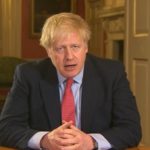 The Covid pandemic has given a unique opportunity to explore the various leadership styles in action around the world, and the success they’ve had in grappling with the pandemic. A recent study from the University of Exeter used the “big five” personality traits of conscientiousness, agreeableness, openness to experience, extraversion, and neuroticism, to understand the leadership style of leaders from around the world.
The Covid pandemic has given a unique opportunity to explore the various leadership styles in action around the world, and the success they’ve had in grappling with the pandemic. A recent study from the University of Exeter used the “big five” personality traits of conscientiousness, agreeableness, openness to experience, extraversion, and neuroticism, to understand the leadership style of leaders from around the world.
“We wanted to examine the extent to which the stringency and the speed of a country’s policy responses to a crisis are associated with the personality traits of its leader,” the researchers say. “We found—across different countries—who we elect has an effect on policy responses independent of constraints such as party.”
The analysis revealed that leaders with higher levels of openness were usually most reluctant to close down the economy but also less likely to provide income support to citizens affected by such closures. It was those leaders who were most agreeable that were the opposite.
Similarly, those leaders with higher levels of neuroticism were more likely to be risk-averse and indecisive, with the researchers suggesting this is linked with how they experience emotions, such as sadness. This indecisiveness did not befall conscientious leaders, who were generally quicker to introduce protective measures.
Leadership response
The results, which came from an analysis of 26 leaders from across the world in which researchers assessed the language used by those leaders in press conferences, interviews, speeches, parliamentary questions, and statements. These were then compared with the policy responses they enacted in their country during the pandemic.
The most common personality trait among world leaders was openness and conscientiousness, with more divergence in terms of neuroticism, extraversion, and agreeableness. There was, however, relatively small variation in the leadership traits across most leaders, with the only leader with noticeably divergent characteristics being Donald Trump.
“Even though COVID-19 has presented leaders with essentially identical repertoires of potential policy responses, we found their stringency and speed of response has been influenced by more factors such as the political party they belong to,” the authors conclude. “This shows who we elect, even in a situation where different countries face a similar crisis, can have an impact on the response.”